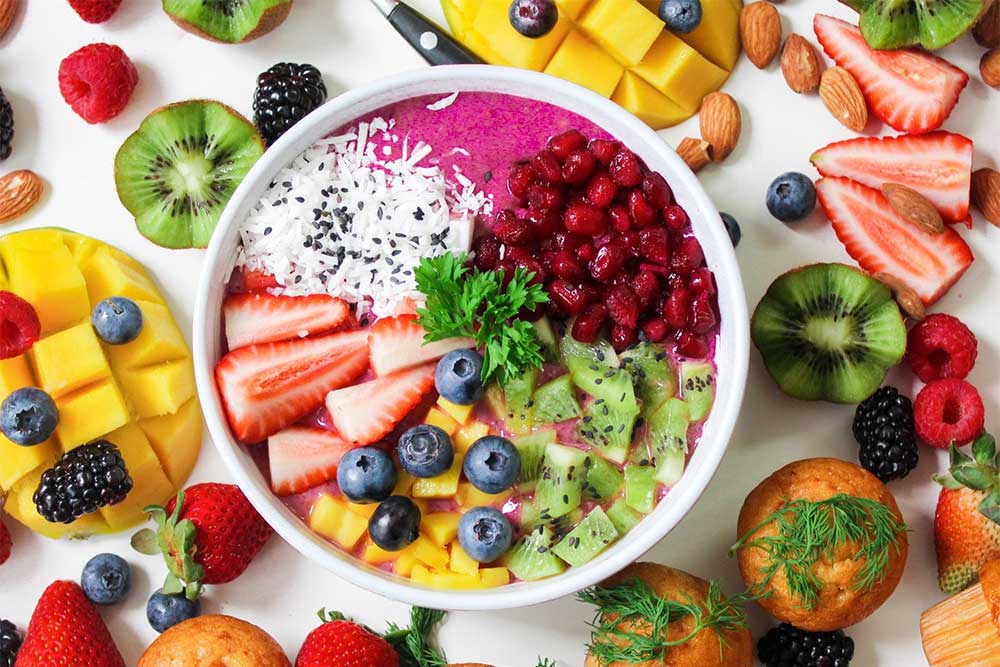Did you know that 70% of your immune system comes from your gut? Your gut health has a direct impact on your health and ability to fight illness. In your gut, mainly the large intestine, you have what is called your gut microbiome. What does that mean? Think of the microbiome like a community with several types of residents, mainly bacteria. These bacteria are beneficial for your health and help with illness and inflammation. When you become ill, bad bacteria will enter your gut and can reduce the number of the good bacteria you have. This can cause problems with diarrhea, irritable bowel syndrome, and other inflammatory conditions. The antibiotics you receive while sick can also wipe out the good bacteria in your gut. You need these good bacteria present to help fight off the bad bacteria and keep your microbiome healthy, which in turn keeps your body healthy. This is where probiotics and prebiotics come in.
You’ve most likely heard of probiotics and have maybe even added some to your diet either with foods or supplements, but do you know what they are and what they do? Probiotics are the good bacteria you want to add to your microbiome, the good citizens of your gut community. There are many types of bacteria that can be considered probiotics. The most common types that can be found in stores are Lactobacillus and Bifidobacterium. You can get these probiotics from fermented foods such as yogurt or pickles. There are also fermented drinks like kombucha (fermented tea) or kefir (fermented dairy drink) that will add probiotics to your diet. The main job of these probiotics is to maintain a healthy balance in your body, which means fighting off the bad bacteria that may enter during illness or in some medical conditions. Getting rid of the bad bacteria and restoring balance makes you feel better. These good bacteria support your immune function and can help control inflammation. Not only that, but these good bacteria can help with your digestion, keep you from getting sick by fighting bad bacteria, and help prevent bad bacteria you might consume (from food or drinks) from entering your blood stream by supporting your cells that line your gut. Sounds pretty amazing, huh? If probiotics are the good bacteria with such a large job, what supports the probiotics?
Prebiotics act like food that support the growth of the healthy bacteria in your gut. Many fruits and vegetables are a good source of prebiotics, specifically those that are complex carbohydrates. In the world of carbohydrates, you can consume simple carbohydrates and complex carbohydrates. The complex carbohydrates contain fiber and resistant starch, which cannot be digested (broken down) by your body. This may sound like a bad thing, but the undigested carbohydrates will pass through your digestive tract and become food for the good bacteria and help nourish your microbiome. This helps keep your good bacteria growing and healthy, which in turn helps keep you healthy. Foods that can provide these beneficial prebiotics are apples, yams, garlic, onions, bananas, oats, whole grains, lentils, beans, asparagus, and many more. With a variety of tasty fruits and vegetables to choose from, getting your prebiotics from your food can be a yummy and simple addition to your day. Remember the adage, “an apple a day keeps the doctor away?” This just might refer to the great benefits provided from the prebiotics in maintaining a healthy gut microbiome, as well as the many other nutrients an apple provides. No matter your choice of fruit or vegetable, they all provide the benefit from prebiotics in maintaining a healthy gut and can be a fun way to add variety to your diet.
By: Lindsi Gjetley MS, RD, LD


0 Comments